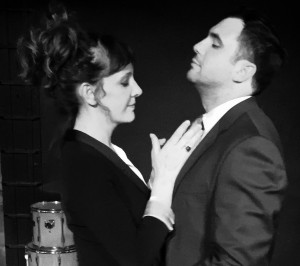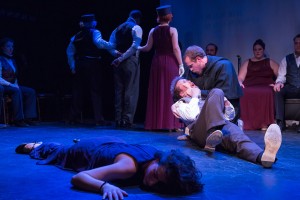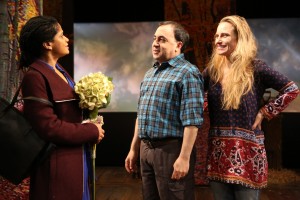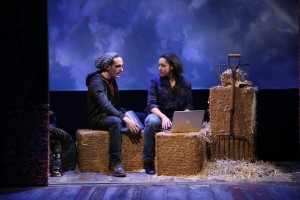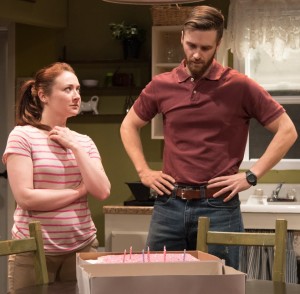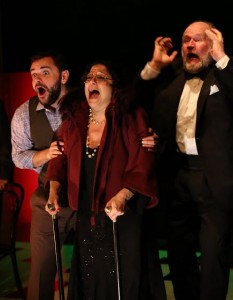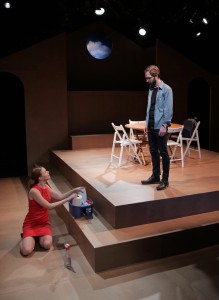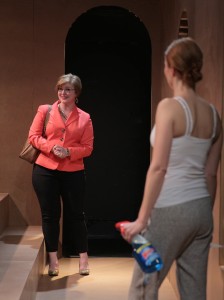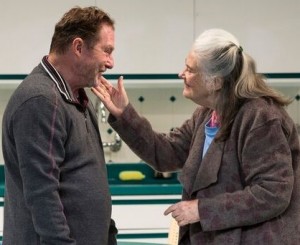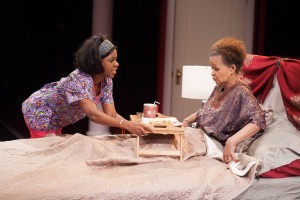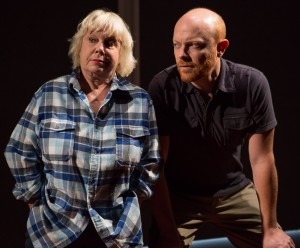Carleton King grew up in Brooklyn, had head shots as an infant and was pushed toward the profession by his parents. Even so, he always knew he had a knack and evolved with the craft by studying acting and theater at St. John's University and Long Island University. After a number of acting credits over the last decade in theater, film and TV, King developed the web series Why Not Just Tell The Truth. With a few thousand subscribers across the globe, King has decided to go Off-Broadway to gauge whether he should add to the 11 episodes already in the can. Either way, coming clean is at the heart of his inspiration.
Carleton King: Honesty is a very deep rooted idea. Most people hate to be lied to but sometimes we even lie to ourselves. This can leave you in a lot of trouble when you’re in denial or being dishonest in interpersonal relationships. So I wanted to explore some of those situations.
OffOffOnline: Taking a look at some of the episodes, I see characters with some heavy weaponry and situations that go on beyond just lying to your girlfriend.
Carleton King: Yes, some of the characters allow certain situations to become bigger than normal life and stem mostly from Tracey (Ana Araújo). Her father was a mafia boss, and her mother comes from a Cuban crime family. That causes her to have this weird dichotomy of a personality, but her friendship with Jason helps drive the plot. So anyone who disrespects him has to worry about her coming after them.
OffOffOnline: Jason is your character. Tell me about him.
Carleton King: He’s a good guy. He believes in love, marriage and making things work. That can work to his detriment because he’ll try to make a bad thing work when he probably just needs to let it go.
OffOffOnline: I guess that includes his marriage.
Carleton King: I’ll just say it. Kathy (Charese Annel) is a bitch. He got his heart broken in college by Janette (Margaret McDuffy and Inayah Burton). She was the one that got away and this left a lingering hole in his heart. Unfortunately, he ends up filling it with the wrong person.
OffOffOnline: Denial—if you will?
Carleton King: Yes… She is evil but hopefully people get to understand what makes her the way she is.
OffOffOnline: She sounds more suited to Tony, the player.
Carleton King: He’s in denial in the sense that he doesn’t want a real relationship or love.
OffOffOnline: Why?
Carleton King: All the characters have their face value and their underlying value. In other words, the things that make them what they are. He’s in denial in the sense that he doesn’t want a real relationship or love.Tony (Patrick Jackson) has all these women, and it’s so easy for him. But why does he chase love like that? We just hope people can come to understand what makes a player a player.
OffOffOnline: How much does Jason relate to your life?
Carleton King: If you know my life, you really wouldn’t get the correlation. But a lot of the situations were inspired by the feelings that these scenes are based on. So if you follow the emotions, then you get the idea where the inspiration comes from.
OffOffOnline: How much is New York City a character?
Carleton King: This play could take place anywhere but it does come into play in the background of the characters. Mariah (Janelle Stein) is a reformed hood girl from the projects. That’s a very specific thing because projects in other cities are not the same. The ethnic mix in New York is also different. So the intermingling in our melting point is inherently different and represents itself in the characters.
OffOffOnline: Are you using the same actors from the series?
Carleton King: Except for me, it’s a whole new cast.
OffOffOnline: What was it like converting from the web to a play?
Carleton King: You don’t have the magic of editing and multiple takes. Then we had to break things down to their basic level and rearrange to fit a more natural order so they flow better.
OffOffOnline: What will be the impact of doing this live?
Carleton King: There’s so many things that I put into the show—it wouldn’t be the same if I tried to record it. The scenes had to be done right there in front of an audience because it’s more of an interactive thing… I’ll just say I plan to raise a few eyebrows.
OffOffOnline: What do you hope people take away?
Carleton King: The truth can be a very powerful thing that shouldn’t be lost in translation, and hopefully people can have the courage to be honest in the first place.
Performances of Why Not Just Tell The Truth run on Friday, Feb. 19 at 5 p.m. and 7:30 p.m. at The Tato Laviera Theatre (240 East 123rd St. between 2nd and 3rd Aves.) in Manhattan. Tickets are $25 and can be purchased by visiting https://www.eventbrite.com/e/why-not-just-tell-the-truth-the-play-tickets-19703885853.








